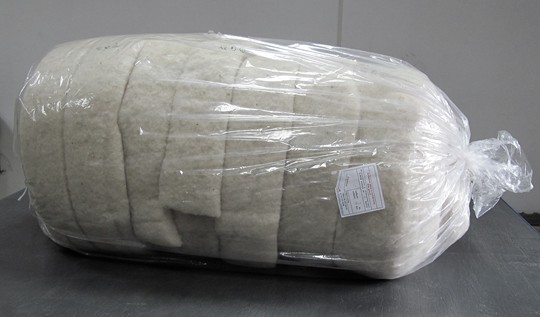Sheep wool is an eco-friendly, non-toxic, and recyclable material, which stems from its natural characteristics. It has comparable thermal properties to mineral insulation and is suitable for making building insulation. Wool can absorb and release large amounts of moisture. It absorbs various odor-causing substances like formaldehydes, cigarette smoke, ozone, etc. When handling, no protective equipment is required, unlike mineral wool. The lifespan of this type of insulation is long-lasting.

Bulk density … 18kg/m3
Thermal conductivity … 0.038 W/mK
Moisture absorption … up to 30%
Flammability class according to DIN 4102 – Part 1 … B2
Fire reaction STN EN 13 501-1 … Class E
Ignition temperature … 560 °C (without special treatment)
Thermal conductivity … 0.034 to 0.042 W.m-1.K-1
Diffusion resistance … 1.5 Rd [m/s]
Widths: strips 100mm/260bm – pack
120mm/220bm/pack
140mm/180bm/pack
170mm/160bm/pack
200mm/120bm/pack – length of strips in packaging 20m
Thickness: standard – approx. 40 mm
Density: standard 800 – 850g/m2
Sheep wool is most commonly used in the construction of log homes and chalets as natural thermal insulation for roofs and ceilings. Sheep wool adapts well to various cavities in structures and, due to its mechanical flexibility, ensures shape stability and long-term functionality. This is used for sealing gaps between beams in Canadian log houses as well as traditional log cabins.
Sheep wool has a self-extinguishing capability, it does not burn, it only chars. To protect sheep wool from biological effects and fire, eco-friendly, non-toxic additives are used.

